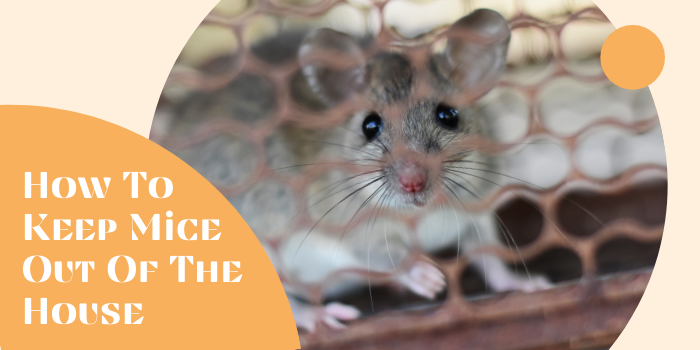
Mice tend to be everywhere. In your house, they can bring devastating damage by eating through your stuff.
They also pose a threat to your health as some of these rodents are carriers of various bacteria and can trigger an allergic reaction.
You’ll know you’ve got mice in your house when you notice chewed boxes, mouse droppings, or the foul odor of a dead mouse.
To keep the house in order and to protect your health, you should work towards getting rid of the rodents.
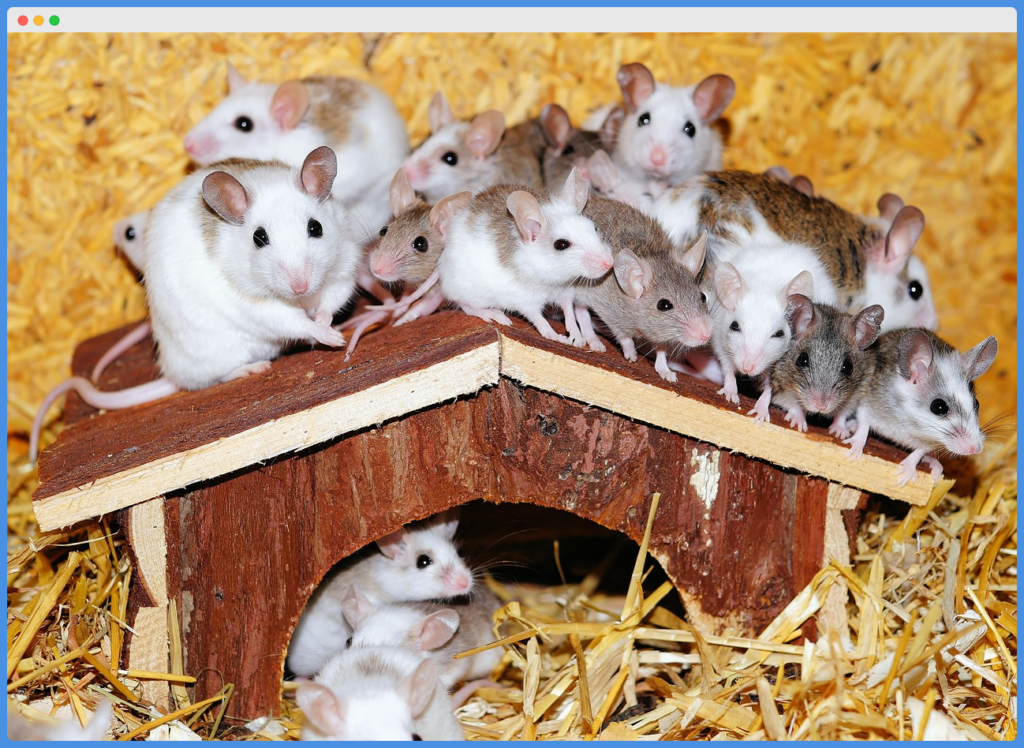
There are many ways to get rid of mice at home and prevent them too. I’ll be discussing them in this post.
How To Repel Mice From Your House
Here are some truths and untruths about repelling mice at home:
1. Dryer Sheets
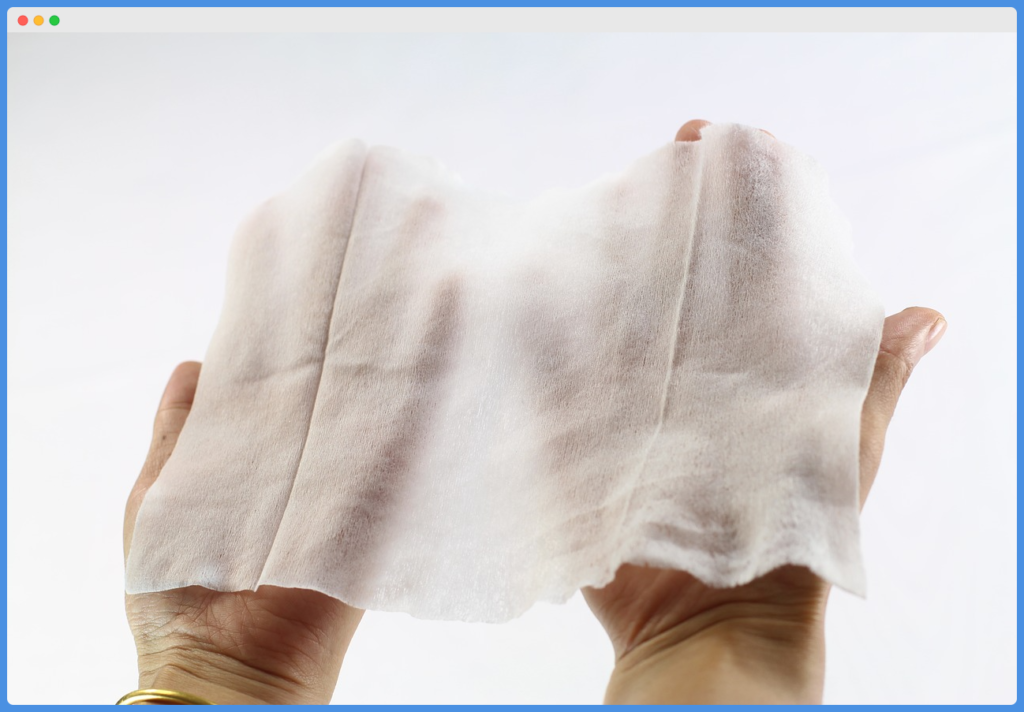
The first question to ask is, do dryer sheets repel mice and keep them away?
Dryer sheets used to be just for laundry. However, they are now being used for other things around the house. Repelling mice is one of them.
There are two types of dryer sheets; the ones made with polyester and the ones made with cellulose. Mice aren’t particularly fond of polyester-based dryer sheets.
They dislike the strong fragrance attached to these sheets due to the positively charged ions the sheets feature. Your dryer sheets might have any fragrance – citrus, lavender, or even fragrance-free – but still, mice won’t like them.
Therefore, you can repel mice by placing dryer sheets along their path or any other area they usually come around. The smell will only chase them away but won’t kill them. However, should a mouse chew on the sheets – which is unlikely, it could die.
Conversely, dryer sheets are affordable, so with this option, you won’t be spending too much to repel mice. Furthermore, you’ll find the smell of dryer sheets pleasant.
2. Colors

What color do mice hate? Mice are color blind; they don’t see colors as we do. They see colors as red-green color blind people would. Hence, they can only see a few colors.
Most of what they see are blue, dull yellow, and gray shades. Hence, there is little you can do with colors when it comes to repelling mice.
Due to mice being nocturnal and mainly active at night, lots of people believe they avoid light or bright colors. That’s a myth as mice are used to both day and night.
Unlike humans, they don’t need extra light to see in the dark and this is an advantage they tend to exploit at night.
Nevertheless, scientific studies show that certain light colors can affect mice. For example, it’s easier for mice to stay very active under blue light, while it’s the opposite if a green or red light is used.
Since they’re color blind to red and green; they do find it a bit difficult to see clearly in red and green lights.
3. Peppermint Oil

You’ll find peppermint oil in a lot of toiletries and a lot of people use it to repel mice at home. Peppermint has a strong aroma which can be irritating to mice as these rodents have a very strong sense of smell.
While you can use peppermint oil, it’s not a very reliable means of repelling mice at home. The reason is that the strong aroma diffuses rather quickly.
Initially, when the oil is sprayed, it’ll keep the mice away as they simply avoid the spot. Once the aroma subsides, they could come back.
To get the most out of peppermint oil, you should use a 100 percent concentrated product. Use cotton balls that can retain moisture to dip in the oil and place them at strategic places around your house.
It might take a day or two for the aroma to diffuse so you have to be on standby to replace the cotton balls several times per week.
For more effectiveness, you can mix peppermint oil and clove oil. Furthermore, there are specific peppermint oil mouse repellent sprays you can get from stores.
4. Mothballs
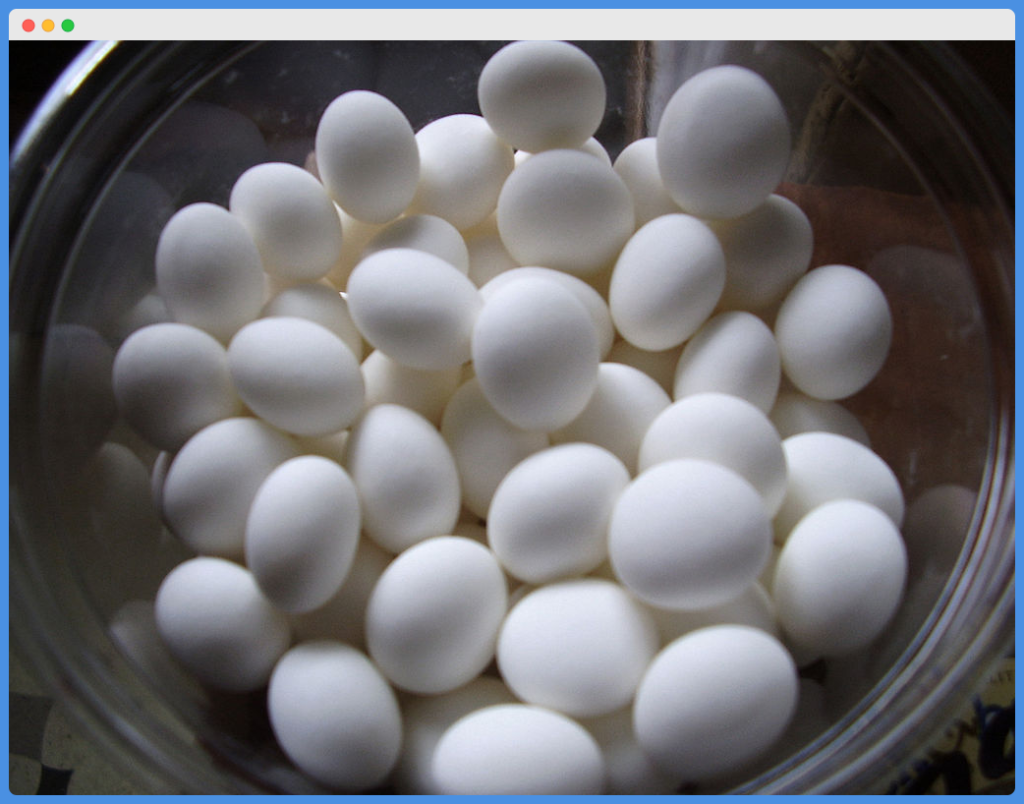
People often ask, do mothballs keep mice out of the house? No! Mothballs are ineffective in repelling mice.
The misconception about mothballs being ideal mice repellents is because they mostly contain naphthalene. Naphthalene has a strong smell and can prevent the red blood cells from carrying oxygen when inhaled.
That could be effective in repelling mice, but mothballs contain only a minimal amount of naphthalene. Therefore, for it to be effective, you’ll need to use many mothballs.
That is hazardous because naphthalene can prevent the red blood cells from carrying oxygen in rodents and you as well. With too many mothballs scattered, you could have difficulty breathing. Not to mention the odor from mothballs is very uncomfortable.
Naphthalene is a proven cause of nasal cancer amongst other illnesses. Moreover, you are trying to repel mice from your home and not causing damage to your health.
If you must use mothballs, check the labeling for precautions about using it indoors. Also, avoid mothballs containing naphthalene and go for paradichlorobenzene instead.
5. Bleach
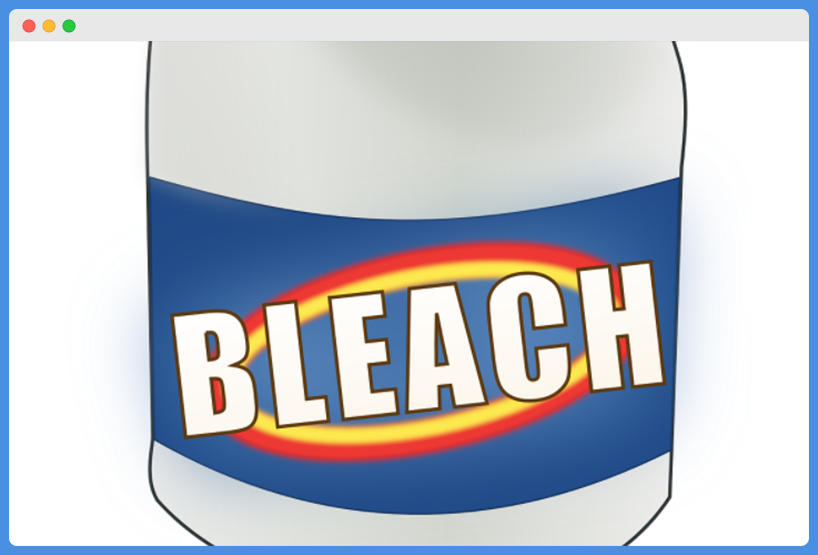
Bleach is commonly used as a cleaning agent at home. However, does bleach repel mice?
Bleach has a very powerful stench that mice can’t stand; also, humans can hardly stand it either. Since mice don’t like the smell of bleach, it can be used as a repellent to keep them away.
However, spraying bleach around your home may give it an unpleasant smell. Furthermore, if you inhale bleach for too long, you risk having problems like decreased oxygen intake and bleeding.
Thus, while bleach can be a great repellent, it isn’t the best health-wise. To avoid this, you should mix the bleach with a little water to somewhat reduce its concentration and spray on suspected areas only.
Furthermore, you shouldn’t spray the bleach on every exit. Leave at least one so the mice can leave your house for good. If all exits are disinfected, they’ll stay in.
While at it, you should wear protective gear and be careful while spraying. Bleach can cause damage to your skin if it touches you or and it can damage your belongings as well.
6. Irish Spring
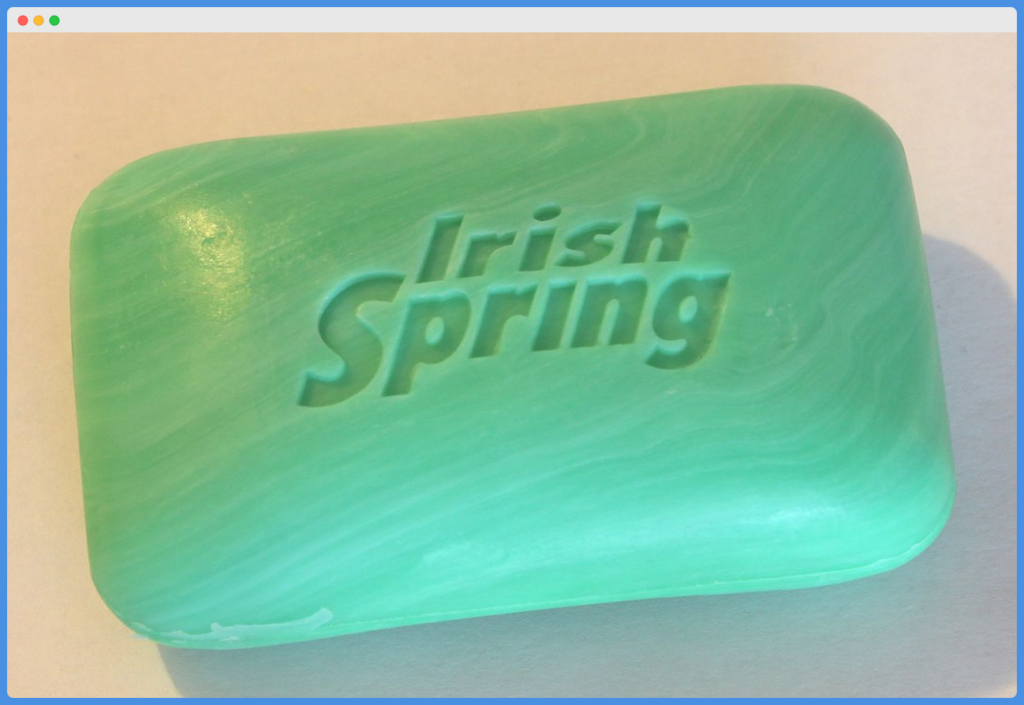
Irish Spring is a popular deodorant soap in the USA. It has a citrus and fresh bergamot scent and several persons have attested to repelling mice with it. This begs the question, does Irish Spring keep mice away?
Well, generally, soap is believed to be poisonous to mice. A mouse is likely to eat anything it comes across that looks like food. So, you can place Irish Spring soap in ideal places and they’ll die when they eat it. Also, the strong scent of Irish Spring is not one that the mouse will love.
However, while this will work for some mice, it won’t work for others as mice are different. If you want to try this option, you’ll need 2 or 3 bars of Irish Spring soap and a cheese grater. All these can cost you about $20.
Grate the soap until you have a pile of shavings and simply place the shavings in ideal places inside your house. If you don’t want to make a mess of the place, you can place the shavings inside a mesh bag with holes or in a butter dish.
7. Cats

You know cats and mice aren’t compatible. As a result, a great way of repelling mice in your house is by getting a pet cat.
Mice are afraid of cats. More specifically, they fear the smell of cats. Cats emit a chemical from their saliva which triggers a mouse’s sensory organs and causes fear.
Furthermore, cats are natural hunters. They love chasing after smaller animals; it’s a game to them. When a cat sees a live mouse running around, his natural hunting instinct kicks in and he chases after the rodent.
However, not all cats are hunters; some cats are highly domesticated and will hardly go after mice. This is because most cats are sold to be pets and not hunters.
Furthermore, a horde of mice in your house might be too much for one cat to handle; he can’t hunt them all. Hence cats are ideal for not-too-serious cases.
If you own a cat as a pet, letting him go after mice might not be ideal as he could pick up a disease from them.
8. Ammonia
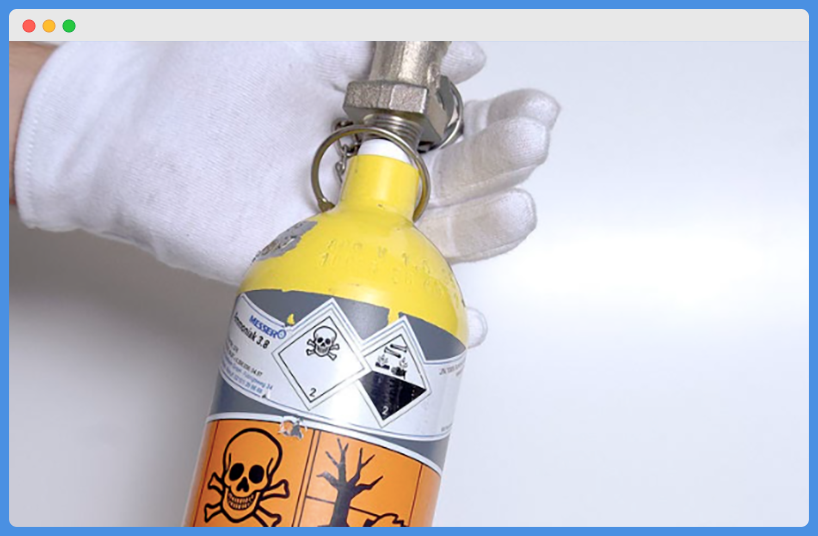
Like most mouse repellents already discussed, ammonia has a strong odor that mice don’t like. This chemical smells a lot like urine and when a mouse perceives it, it’ll think there’s a cat close by.
Hence, you can use ammonia to keep mice away by spraying them at ideal areas where the mice do disturb. Also, you can simply fill ammonia in cups and place them at ideal entrances.
However, be mindful because if it comes in contact with your skin or that of somebody else, it could cause harm.
With time, the odor is sure to subside so you would need to replace the ammonia a couple of times per week.
9. Traps

Mousetraps are still a great way of repelling mice at home. There are different types of mouse traps available and all have a basic function which is to capture a mouse should it step on it.
However, there are kill and no-kill mouse traps. While the former would kill the mouse, the other will simply capture it so you can perhaps kill it outside. You should decide if you want mouse blood in your home or not. No-kill mouse traps are usually sticky.
The best type of kill mouse traps to go for are snap traps. These types of traps feature a quick trigger system and are very effective in killing mice. Although they are not very easy to set up, they are relatively affordable and you can reuse them.
Additionally, you can opt for electric mouse traps. Such traps kill mice via a fatal electric shock. Not to worry, neither you nor your pets can be shocked by it if mistakenly touched.
You should place your mice traps in places that are most vulnerable to mice.
How To Prevent Mice Invasion
If there are no mice in your house, here are a few options to prevent them.
1. Block the Holes

Mice mainly live in holes and sealing them up is an ideal way to prevent them from entering your home, both inside and outside. Mice can get through tiny holes, so no hole should be dismissed.
You can look for holes around the fireplace, doors, vents, pipes, inside your basement, attic, closet, etc.
Outside your home, you should look for holes around doors, windows, roofs, space vents, electrical holes, plumbing holes, gas lines, etc. If the mice are coming in from outside, they’ll likely enter via your house foundation, attached garage, cellar doors, gutters, chimney, etc.
For small holes, you can seal them up using steel wool. Do not use soft wood as the mice can quickly nibble through it. To hold the steel wool in place, you should put steel wool around it.
For larger holes, you can make use of cement, metal sheeting, hardware cloth, lath metal, or lath screen. These are inexpensive and you can get them from your local store.
Furthermore, make sure your windows, air vents, dryer outlets, etc, are covered with metal wire mesh. Use grid formats that are closely wired.
2. Trimming

If you’ve got thick bushes and shrubs around your home, it won’t take long for some mice to come visiting. These bushes and shrubs are ideal for these rodents to conceal themselves.
So, if you want to prevent mice from invading your house, you should keep them trimmed. If you happen to have a garden around your home, this is even more important to you.
Shrubs and grass around your house shouldn’t be left to grow high; always trim them short. Aside from preventing mice, it’s also great for your health as overgrown shrubs can conceal other pests as well.
Shrubs shouldn’t brush against your home. A 6- to 12-inch distance away from your walls is ideal.
Furthermore, there are some rodent-attracting plants that you should avoid putting in your garden to keep mice away. This includes plants like sunflowers, corn, etc.
Ensure that the limbs of trees around your house don’t come in contact with your roof. It’s easy for mice to run from these tree limbs onto your roof and into your house.
You can try placing mice guards in trees to keep them off. These are sold at garden stores and you can make DIY ones at home.
3. Keep Surroundings Clean and Garbage Sealed

Proper sanitation is important if you want to keep mice away. You need to get rid of all items that can attract these rodents outside your home. The goal here is to keep mice away from the house but that’s impossible if your outer surroundings aren’t clean.
Firstly, take a look at your garbage. If you leave garbage heaps outside your house, it’s sure to attract mice and they could later find their way into your house. Mice get attracted by the odor as they perceive possible food.
Garbage should be placed in garbage cans and sealed shut with a lid. Unfortunately, a lot of neighborhoods have poorly managed garbage cans. Aside from attracting rodents, this can also have bad effects on your health as it could result in pollution. After disposing of the garbage, ensure to wash the garbage cans out to get rid of any odors.
Most importantly, you should get rid of pooling water. You might be unaware but a wet basement can attract rodents as well as other insects and pests.
If you do cook outdoors with a grill, ensure to always keep the cooking area clean when done. Finally, if you have fruit trees outside, get rid of fallen fruit instead of just leaving it on the ground.
4. Avoid Littering Food and Store Food Properly

Do you want to keep mice away from the house? Is your kitchen clean?
Lots of people think their kitchen is clean when it’s not. Those little spills of rice, sugar, oats, etc. are very inviting to mice. These rodents are often after food and will eat anything edible.
If you leave food littering here and there – not in your kitchen alone but other parts of the house – you are soon to have a mouse infestation.
Most significantly, it’s the small areas that matter. Those spaces where you can’t easily access and clean; it’s quite easy for mice to get in there.
Aside from cleaning, you should ensure your food is stored properly. Foods that would attract mice the most should be stored in the fridge as they can’t get in there.
If you store food in other places, make use of airtight containers instead of cardboard boxes. Eating through these cardboard boxes to access the food is an easy job for mice. On the other hand, they can hardly chew through metal, glass, or plastic containers.
If you don’t store your food properly and mice get access to it, you might have to worry about more than an infestation. This is because eating such food may lead to serious health issues as most of these rodents carry viruses and bacteria.
5. Call a Professional Rodent Exterminator

Sometimes, it’s just best to leave the job to the professionals. Rodent exterminators are the perfect professional to call when you want to protect your home from mice.
These rodent exterminators are well trained and know all there is about getting rid of and preventing mice. They are also trained to use sanitary equipment that is necessary when cleaning up infected areas.
A professional rodent exterminator will complete a thorough inspection of your home. This is to identify possible vulnerabilities via which mice can get into your home and the exterminator will come up with the best means to deal with it.
Often, rodent exterminators are hired to get rid of mice after there’s been an infestation. However, hiring one beforehand – before an infection – is more ideal, safer, and a bit less expensive.
Hiring a professional rodent exterminator can be somewhat expensive. Nevertheless, it’s about the most effective means of preventing mice from entering your home. It will save you the time and stress of doing the job yourself.
There are lots of pest control companies you can consult that provide rodent exterminator services. When picking an ideal one, compare their certificate, affiliates, and transparency to know what kind of quality you are getting.
Wrapping Up
Mice are very common. According to Petsworld, mice invade an estimated number of 21 million homes during winter each year. So, if you have a mouse problem, it’s not unusual.
What’s unusual is not being bothered by the problem. With the tips on repelling and preventing mice discussed in this post, you should be able to chase out the mice and keep them out.

Diana Paul is a certified nutritionist who writes for leading health blogs. She is a master herbalist, yoga teacher, forager, and wild-crafting writer She is focused on helping people transform life blocks to opportunities. Based in NYC, she often holds health seminars and lectures.
